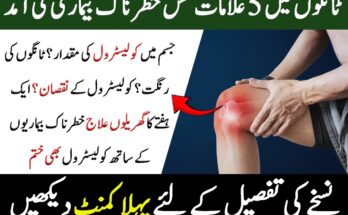Introduction
Toothaches can be a distressing experience, particularly when they involve the molar teeth. Molar teeth, located at the back of the mouth, are essential for grinding food, and pain in these teeth can significantly impact daily activities. Understanding the causes of molar teeth pain and exploring effective home remedies can help alleviate discomfort and prevent further dental issues.
Understanding Molar Teeth Pain
What Is Molar Teeth Pain?
Molar teeth pain refers to discomfort or aching sensations in the molars, the large, flat teeth at the back of your mouth. This pain can range from mild to severe and can be continuous or intermittent.
Symptoms of Molar Teeth Pain
- Throbbing or Sharp Pain: Can be constant or triggered by chewing or temperature changes.
- Swelling: Gums around the affected molar may be swollen.
- Sensitivity: Increased sensitivity to hot, cold, or sweet foods.
- Bad Taste or Odor: Indicates possible infection or decay.
Causes and Risk Factors
Tooth Decay
Cavities caused by bacterial infections can penetrate the enamel and dentin, leading to molar pain.
Gum Disease
Gingivitis and periodontitis can cause gum inflammation and infection, resulting in pain around the molars.
Tooth Abscess
A bacterial infection can lead to an abscess, a pocket of pus, causing severe pain and swelling.
Tooth Fractures
Cracks or fractures in the molar can expose nerves and cause significant pain.
Impacted Wisdom Teeth
When wisdom teeth do not fully emerge, they can press against other teeth, causing pain and discomfort.
Bruxism
Grinding or clenching teeth, often during sleep, can cause wear and tear on the molars, leading to pain.
Diagnosis and Tests
Dental Examination
A dentist will conduct a thorough examination of the teeth and gums to identify the source of the pain.
X-Rays
X-rays can reveal hidden issues such as cavities, abscesses, or impacted teeth that are not visible during a standard examination.
Pulp Vitality Test
This test checks the health of the tooth’s pulp to determine if the nerve is alive and functioning properly.
Treatment Options
Professional Treatments
- Fillings: To treat cavities.
- Root Canals: For infections or damaged nerves.
- Extractions: For severely damaged or impacted teeth.
- Scaling and Root Planing: For treating gum disease.
Over-the-Counter Solutions
- Pain Relievers: Ibuprofen or acetaminophen can help reduce pain and inflammation.
- Antiseptic Mouthwash: Can help kill bacteria and reduce infection.
Home Remedies for Molar Teeth Pain
Saltwater Rinse
A saltwater rinse can help reduce inflammation and kill bacteria. Mix 1 teaspoon of salt in a glass of warm water and rinse your mouth thoroughly.
Cold Compress
Applying a cold compress to the outside of your cheek can help numb the area and reduce swelling. Use the compress for 15-20 minutes at a time.
Clove Oil
Clove oil has natural analgesic and antibacterial properties. Apply a small amount of clove oil to a cotton ball and place it on the affected tooth.
Garlic
Garlic has antimicrobial properties that can help fight infection. Crush a garlic clove and apply the paste to the affected area or chew on a garlic clove for relief.
Peppermint Tea Bags
Peppermint tea has numbing properties that can soothe tooth pain. Place a cooled, used peppermint tea bag on the sore area for temporary relief.
Hydrogen Peroxide Rinse
A hydrogen peroxide rinse can help kill bacteria and alleviate pain. Mix equal parts hydrogen peroxide and water, swish it around your mouth, and spit it out. Do not swallow the mixture.
Baking Soda Paste
Baking soda can help neutralize acids and reduce bacteria. Mix baking soda with a little water to create a paste and apply it to the affected tooth.
Preventive Measures
Good Oral Hygiene
- Brushing: Brush your teeth twice a day with fluoride toothpaste.
- Flossing: Floss daily to remove plaque and food particles between teeth.
- Mouthwash: Use an antiseptic mouthwash to reduce bacteria.
Regular Dental Checkups
Visit your dentist regularly for cleanings and checkups to catch and treat issues early.
Dietary Considerations
- Limit Sugary Foods: Reduce intake of sugary foods and drinks that can lead to cavities.
- Eat a Balanced Diet: Ensure you get plenty of calcium and other nutrients for strong teeth and gums.
Avoid Teeth Grinding
If you grind your teeth, consider using a mouthguard at night to protect your molars from damage.
Personal Stories or Case Studies
Case Study: Emily’s Recovery from Molar Pain
Emily, a 30-year-old office worker, experienced severe molar pain due to an abscessed tooth. Through a combination of professional treatment (root canal) and home remedies like clove oil and saltwater rinses, she managed her pain effectively and recovered fully.
Case Study: John’s Battle with Bruxism
John, a 40-year-old engineer, struggled with molar pain caused by bruxism. By wearing a night guard and incorporating stress-reducing techniques, he significantly reduced his pain and protected his teeth from further damage.
Expert Insights
Dentist Advice
Dr. Lisa White, a dentist with 20 years of experience, emphasizes the importance of early intervention. “If you experience molar pain, don’t ignore it. Early treatment can prevent more serious issues like infections or abscesses.”
Nutritionist Insights
Nutritionist Sarah Green advises on maintaining a tooth-friendly diet. “Eating a diet rich in vegetables, fruits, and dairy products can help maintain strong teeth and prevent decay.”
Conclusion
Molar teeth pain can be a significant discomfort, but with the right knowledge and tools, it can be effectively managed. By understanding the causes and implementing both professional treatments and home remedies, you can alleviate pain and maintain optimal oral health. For persistent or severe pain, always consult with a dentist to address the underlying issues.






